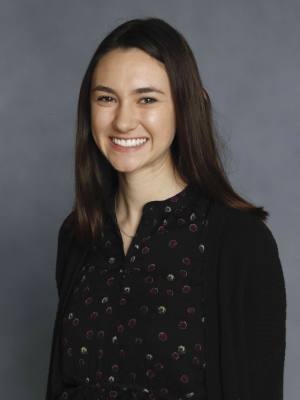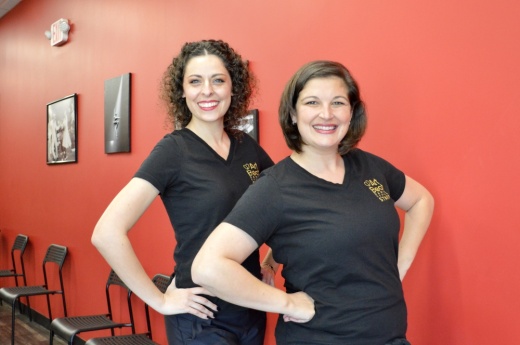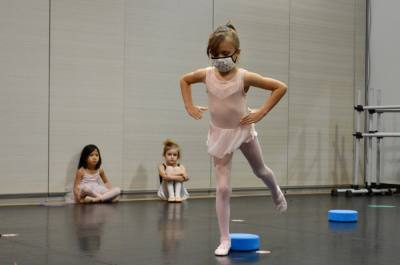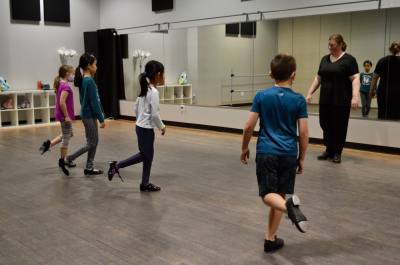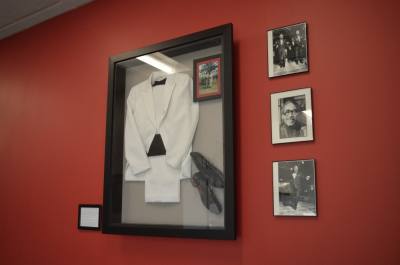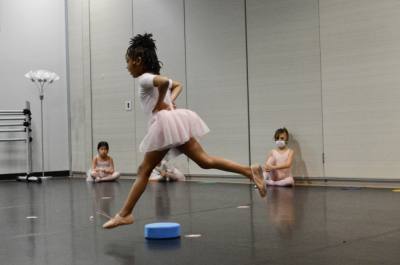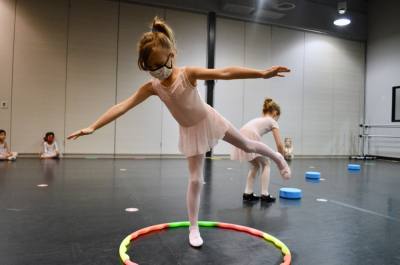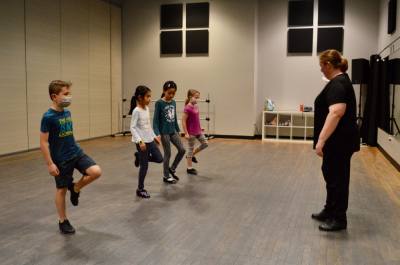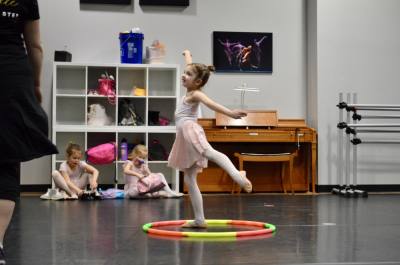“Your experience in a dance class is going to inform all of those things,” Kuhn said.
Kuhn, who started dancing at age 5, opened the Cedar Park dance school in 2017 after professionally dancing for 25 years, teaching for 20 years and managing other studios for 15 years. Kuhn said she wanted to open her own studio to meet three important aspects: high-quality education. a nurturing environment and a community atmosphere. She said many studios have one or another, but not all three parts of her vision for Art Beat.
“I wanted a place that was everything,” Kuhn said.
Art Beat Dance Center is a noncompetitive school but Kuhn said this does not mean students work any less hard.
“They are improving and they are happy,” Kuhn said. “That was not always the case for me when I was a kid. It was a lot of ‘blood, sweat and tears,’ and it doesn’t have to be that way.”
The center teaches students from age "3 to 103’" with about a 50-50 split between youth students and adult students. Classes include ballet, tap, jazz, lyrical and hip-hop, yoga, pilates and musical theatre. Art Beat also has all-boys tap classes.
The dance center also has a nonprofit arm called the Art Beat Foundation, which aims to reach students in underserved populations in the community.
Foundation executive director and studio manager Lindsay Palinsky said the nonprofit works with the dance center to offer adapted dance classes for cancer patients and survivors; adults with Parkinson’s Disease and their caregivers; and people with autism spectrum disorders and Down syndrome.
Art Beat Foundation classes include cancer survivor yoga, dance for Parkinson’s and adaptive dance. These classes are taught to fit each dancer’s needs, whether it is adapting movements post-surgery, needing more one-on-one support or American Sign Language interpretation.
The foundation also allows students to take other weekly classes in addition to the dedicated foundation programs.
“That’s really cool because it also shares with the greater community that everybody is coming at dance from a different area in their life and that we all can come together and find the joy in movement,” Palinsky said.
The nonprofit started after Kuhn’s husband went through cancer treatment and found support through wellness and fitness classes. Kuhn said the cancer survivor yoga involves talking through treatments and anxieties.
“It’s one of the biggest ways that we create community,” Kuhn said. “Where people can come together and they can talk about their cancer or not talk about their cancer.”
The foundation also has a scholarship program to allow students to take classes who would otherwise not be able to attend, which is important to Kuhn and Palinsky who both were able to learn through scholarships themselves.
“Dance truly changed my life, so I don’t want any child to miss that opportunity just because their parent’s can’t afford it,” Kuhn said.
With a specialty and heavy background in tap, Kuhn also works to preserve tap’s history as part of the nonprofit’s preservation program, which keeps the oral history of tap alive through archiving tap icon Leon Collins’ educational routines. The center’s Austin Tap Ensemble, which is comprised of women who learned tap as adults, meets weekly to learn the historical routines with original choreography.
Kuhn said she is reminded daily how lucky they are to see people gathering to make music, listen to one another and connect in a nonverbal art.
“We have the best job,” Kuhn said. “I get love from tiny ballerinas every day. I get to make beautiful rhythms and music with adults who want to be there.”
Art Beat Dance Center
1420 Cypress Creek Road, Ste. 100, Cedar Park
512-258-2232
www.artbeatdancecenter.com


